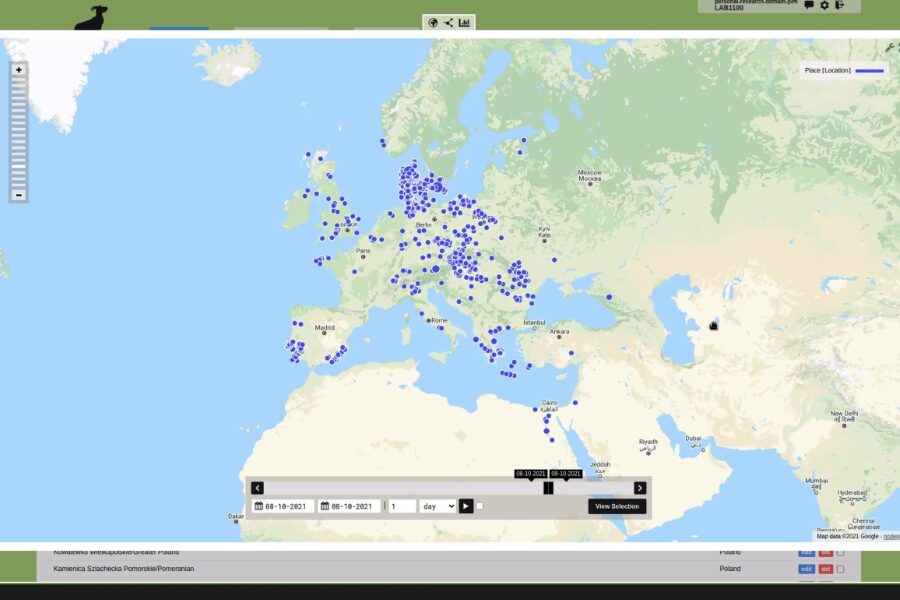
Training School on Digital Data
Between the 7th and the 9th of October 2021, EuroWeb members had the opportunity to learn more about digital tools for data processing and about digital databases in this online Training School organized in close collaboration by the Action’s Working Group 4 – The Fabric of Society and the Digital Atlas Team.
Digital data is both a challenge and an opportunity for researchers these days. Whether or not ECIs want to use digital methods, it is by now important to be aware of the tools and methods available; the aim of this Training School was therefore to introduce PhD students and Early Career Scholars to work with digital tools and databases.
With this goal in mind, the event included a first day focused on discussions and reflections on the EuroWeb Digital Atlas as a deliverable of the COST Action designed to disseminate the network’s work and to raise awareness for Textile Heritage and research.
The following two days of the Training School were dedicated to practical training. On the one hand, Julie Unruh introduced participants into basic techniques to ensure data quality and normalization using OpenRefine; on the other, Pim van Bree offered a comprehensive introductory training on how to design your own research environment/ database using nodegoat.
Both sections of the Training School focused on working digitally with quantitative or serial data, but also touched on the display of data, e.g. using GIS/ digital cartography. This resulted in interesting discussions on the potential of digital tools for collaborative research through data collection and shared storage environments. Participants were also encouraged to bring their own data sets in order to experiment with creating and structuring their own databases and apply what they learned in the Training School to their own research.
Between the 7th and the 9th of October 2021, EuroWeb members had the opportunity to learn more about digital tools for data processing and about digital databases in this online Training School organized in close collaboration by the Action’s Working Group 4 – The Fabric of Society and the Digital Atlas Team.
Digital data is both a challenge and an opportunity for researchers these days. Whether or not ECIs want to use digital methods, it is by now important to be aware of the tools and methods available; the aim of this Training School was therefore to introduce PhD students and Early Career Scholars to work with digital tools and databases.
With this goal in mind, the event included a first day focused on discussions and reflections on the EuroWeb Digital Atlas as a deliverable of the COST Action designed to disseminate the network’s work and to raise awareness for Textile Heritage and research.
The following two days of the Training School were dedicated to practical training. On the one hand, Julie Unruh introduced participants into basic techniques to ensure data quality and normalization using OpenRefine; on the other, Pim van Bree offered a comprehensive introductory training on how to design your own research environment/ database using nodegoat.
Both sections of the Training School focused on working digitally with quantitative or serial data, but also touched on the display of data, e.g. using GIS/ digital cartography. This resulted in interesting discussions on the potential of digital tools for collaborative research through data collection and shared storage environments. Participants were also encouraged to bring their own data sets in order to experiment with creating and structuring their own databases and apply what they learned in the Training School to their own research.